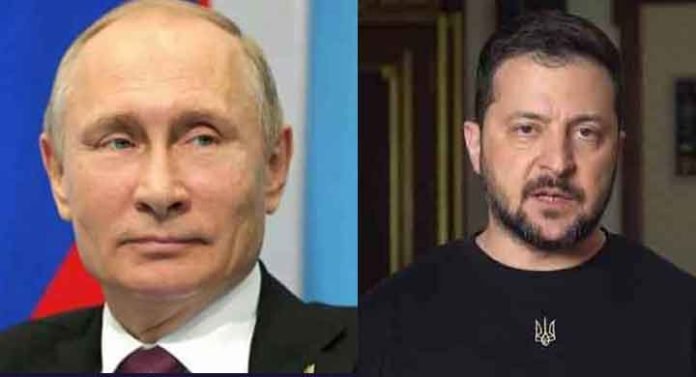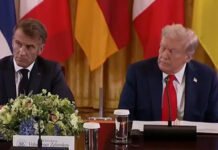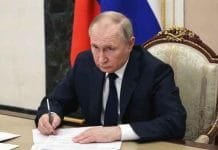INVC NEWS Moscow – Tensions between Russia and Ukraine show no signs of abating, but a new development has sparked renewed hopes for peace talks. On May 15, Russian President Vladimir Putin has indicated that he is ready to engage in unconditional negotiations with Ukraine, potentially paving the way for a ceasefire and an end to the ongoing war. The meeting will take place in Istanbul, Turkey, and could mark a pivotal moment in the crisis. However, Putin’s remarks come amid fresh allegations against Ukraine’s role in halting earlier negotiations.
Putin’s Bold Offer for Ceasefire Talks in Istanbul
In a statement made Sunday, President Putin offered a direct, unconditional ceasefire proposal to Ukraine, highlighting a shift in his stance after months of hostilities. The talks, scheduled to take place in Istanbul on May 15, could bring a rare opportunity for dialogue, although the global community remains wary of Russia’s true intentions.
Allegations Against Ukraine: Did Kyiv Stop Talks in 2022?
Despite the renewed offer, Putin placed the blame squarely on Ukraine for the failure of previous peace talks. He argued that Russia had repeatedly proposed ceasefires in the past, but Ukraine, along with its Western allies, allegedly ignored these calls. Putin also accused Kyiv of rejecting a joint ceasefire draft that had been agreed upon by both sides back in 2022, claiming that Western pressure led Ukraine to back out.
This narrative from the Russian president stands in stark contrast to the Ukrainian government’s own account, raising questions about who is truly responsible for the collapse of peace talks. According to Putin, this latest initiative is an effort to restart dialogue and end the bloodshed, despite Ukraine’s reluctance to engage without certain conditions.
Russia’s Unilateral Ceasefire: Claims of Ukrainian Violations
Further complicating the situation, Russia’s recent 72-hour unilateral ceasefire, which ended on Sunday, was met with accusations from Putin. He claimed that during this temporary cessation of hostilities, Ukraine attempted to attack Russian borders five times, undermining the fragile ceasefire. These allegations have escalated the rhetoric between the two countries, with each side blaming the other for violating terms of ceasefire agreements.
Zelensky’s Counterproposal: 30-Day Ceasefire or Sanctions
Meanwhile, Ukrainian President Volodymyr Zelensky is offering his own ceasefire proposal. Zelensky has called for a 30-day unconditional ceasefire starting Monday, framing the initiative as a necessary step to clear the way for peace talks. If Russia fails to comply, Zelensky has warned of severe sanctions targeting key sectors such as energy and finance.
This proposal follows discussions with world leaders, including French President Emmanuel Macron, German Chancellor Olaf Scholz, UK Prime Minister Keir Starmer, and Polish Prime Minister Donald Tusk, all of whom have shown varying levels of support for Zelensky’s proposal. Former US President Donald Trump has also reportedly backed Zelensky’s call for a ceasefire, though the White House has yet to comment on the proposal.
The World Watches: Will May 15 Bring a Breakthrough?
With the stage set for a critical meeting in Istanbul on May 15, all eyes are now on whether this encounter will result in a concrete step toward peace or if it will be yet another lost opportunity. Despite the differences between the two countries, the potential for a ceasefire remains a possibility, albeit one that many fear may be short-lived.
As tensions continue to rise, the global community is holding its breath, hoping that the upcoming talks will not just mark a temporary pause in fighting, but a long-lasting step toward resolving the Russia-Ukraine war. Will Putin and Zelensky find common ground, or will their ongoing dispute continue to fuel a devastating war with no end in sight?















